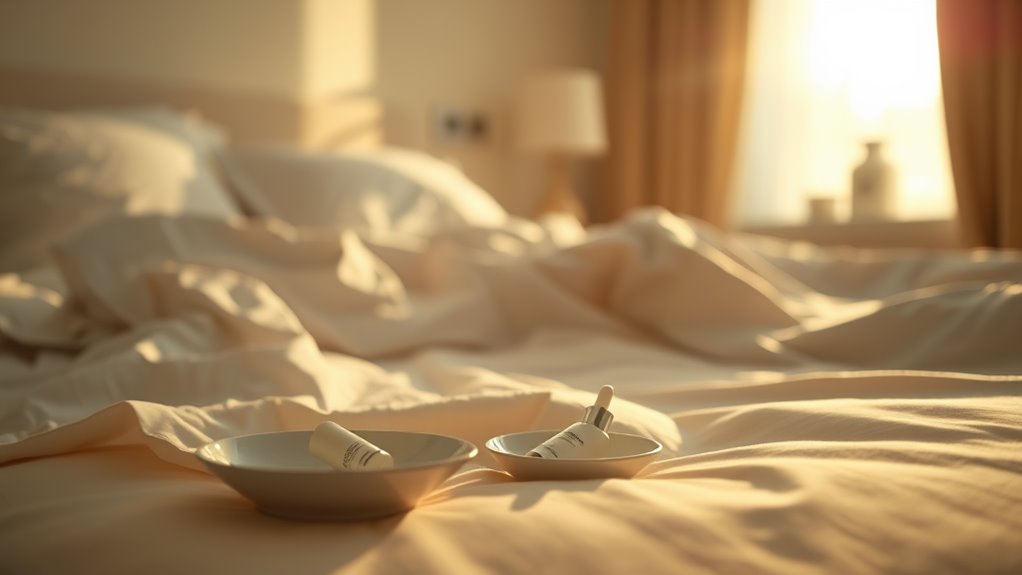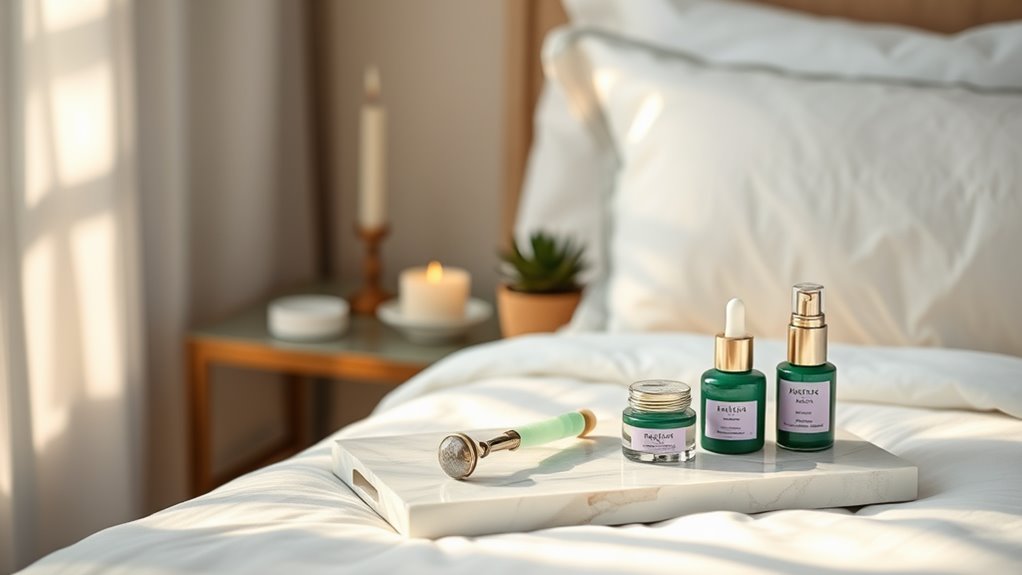Beauty Sleep Is Real – Here’s the Proof and How to Maximize It
You might’ve heard the term “beauty sleep” tossed around, but there’s real science backing it up. Quality sleep significantly impacts your skin health, influencing factors like collagen production and cell turnover. As you rest, your body works to regenerate and repair, giving you a more vibrant complexion. Curious about which sleep stages are crucial for your skin’s rejuvenation and how you can enhance your nighttime routine for glowing results? Let’s explore.
The Science of Sleep and Skin Regeneration
As you drift into peaceful slumber, your body kicks into gear, working tirelessly to repair and rejuvenate your skin.
During sleep, your skin undergoes a crucial regeneration process. Studies show that deeper stages of sleep promote increased production of growth hormones, which assist in cell turnover and collagen synthesis. This enhanced collagen production helps maintain skin elasticity and combat premature aging.
Moreover, adequate sleep supports hydration by balancing levels of cortisol, a stress hormone that can lead to increased oiliness and breakouts.
Prioritizing quality sleep is essential for skin repair, as it allows your body to heal damaged cells and flush out toxins accumulated throughout the day. Additionally, implementing better sleep habits can significantly enhance your overall skin health and appearance.
How Sleep Affects Your Complexion
While you sleep, your complexion reaps the benefits of a well-rested body and mind. Quality sleep is vital for skin repair, as it boosts blood flow and collagen production. During deep sleep, your body increases growth hormone levels, stimulating skin cell turnover. Conversely, a lack of sleep leads to increased stress hormones like cortisol, which can exacerbate skin issues such as acne and eczema. Furthermore, sleep deprivation can lead to premature aging, leaving your skin looking tired and unhealthy.
| Sleep Quality | Skin Effect |
|---|---|
| Deep Sleep | Enhanced regeneration |
| Poor Sleep | Dull and uneven tone |
| Restful Sleep | Reduced puffiness |
| Interrupted Sleep | Increased inflammation |
| Consistent Sleep | Improved elasticity |
Prioritize restorative sleep, and you’ll notice the positive effects on your complexion, ensuring your skin looks vibrant and fresh.
Key Sleep Stages for Optimal Skin Health
To achieve optimal skin health, you need to understand the key sleep stages that contribute to rejuvenation.
During your sleep cycle, REM (Rapid Eye Movement) and deep sleep play crucial roles. In deep sleep, your body repairs itself, stimulating collagen production and releasing growth hormones essential for skin elasticity. This stage also helps in detoxification, flushing out impurities that can lead to breakouts.
REM sleep, on the other hand, enhances brain function and emotional well-being, minimizing stress, which can trigger skin issues like acne or eczema. Additionally, a vital connection exists between adequate sleep and overall skin health, emphasizing the importance of a good night’s rest for maintaining vibrant skin.
Prioritizing these stages ensures your skin gets the necessary rest and repair it needs, resulting in a clearer, more vibrant complexion. Understanding these sleep stages is your first step toward glowing skin.
Tips for Enhancing Your Sleep Quality
Improving your sleep quality can significantly elevate not just your rest but also your skin health. To achieve this, focus on establishing a consistent sleep schedule—going to bed and waking up at the same time daily helps regulate your body’s internal clock.
Create a restful environment: keep your room dark, quiet, and cool to promote better sleep. Limiting screen time before bed is crucial; the blue light emitted by devices disrupts melatonin production.
Incorporating relaxation techniques, like deep breathing or meditation, can also ease your mind and prepare you for sleep. Lastly, be mindful of your diet; avoid heavy meals, caffeine, and alcohol close to bedtime, as they can interfere with your ability to fall and stay asleep. Additionally, prioritizing quality sleep is essential for maintaining skin elasticity and hydration.
Nighttime Routines for Radiant Skin
As you wind down for the night, a well-crafted nighttime routine can significantly enhance your skin’s radiance by allowing your complexion to recover from daily stressors. Start by gently cleansing your face to remove dirt and makeup, prepping your skin for hydration. Follow up with a quality toner to balance your skin’s pH levels.
Next, apply serums rich in antioxidants, like Vitamin C, which help repair and brighten your skin overnight. Lock in moisture with a nourishing night cream tailored to your skin type, whether it’s oily, dry, or combination. This routine can nourish your sensitive skin and enhance its health and resilience by morning.
Lastly, don’t forget to treat your lips and under-eye area with specialized creams. Consistency is key, so stick to your routine for maximum glow!




